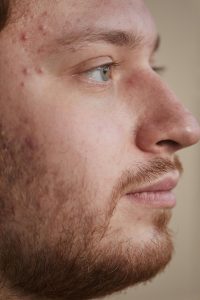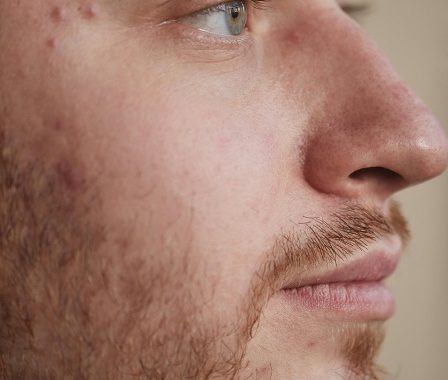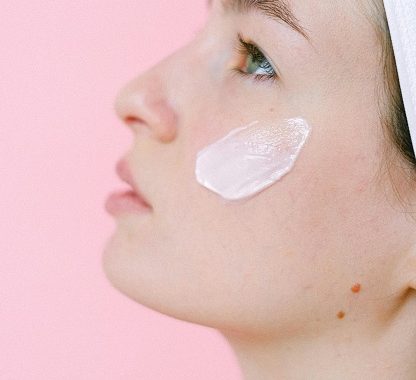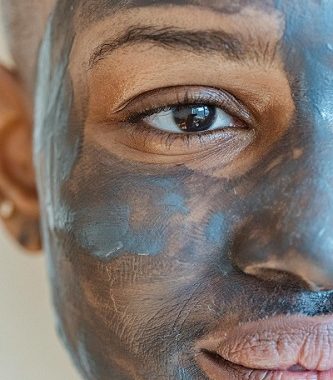
Acne, a common skin condition that affects millions worldwide, can be a persistent source of frustration for many. While there are numerous treatments available, one intriguing option gaining attention is hormone therapy. But can hormone therapy truly help in the battle against acne?
Understanding Hormonal Acne:
Hormonal acne arises from hormonal imbalances, notably androgens such as testosterone. These hormonal fluctuations trigger overproduction of sebum, resulting in blocked pores and acne eruptions.
Typically characterized by deep, cystic lesions, hormonal acne commonly manifests along the jawline, chin, and occasionally the cheeks.
Understanding this type of acne is crucial, as it requires targeted treatments to address the underlying hormonal factors driving its development.
Traditional Treatments vs. Hormone Therapy:
Traditional acne treatments, such as benzoyl peroxide, salicylic acid, oral antibiotics, and isotretinoin, primarily focus on reducing inflammation, killing bacteria, and regulating skin cell turnover.
While effective in many cases, these treatments often fall short in addressing hormonal imbalances, a significant factor in acne development. Hormone therapy, on the other hand, specifically targets the root cause of hormonal acne by modulating hormone levels.
By using medications like spironolactone, which blocks androgen receptors and reduces sebum production, hormone therapy directly addresses the hormonal imbalances that contribute to acne.
This approach not only treats existing acne but also helps prevent future breakouts by restoring hormonal equilibrium within the body.
Therefore, for individuals struggling with persistent hormonal acne, hormone therapy offers a more targeted and comprehensive solution compared to traditional treatments.
Apple Cider Vinegar Foam Exfoliating Face Wash & Brush
Spironolactone: A Promising Option:
Spironolactone, originally designed as a diuretic, has emerged as a potent player in acne management due to its anti-androgenic qualities.
Particularly noteworthy for its effectiveness in treating hormonal acne, spironolactone has garnered attention within dermatological circles.
Studies have consistently demonstrated its ability to notably diminish acne lesions, especially in adult women grappling with hormonal imbalances.
The mechanism of action lies in its capability to thwart the effects of androgens on the skin, consequently curbing excessive oil production and thwarting the formation of clogged pores.
This dual action not only addresses the symptoms of acne but also targets the underlying hormonal irregularities, offering a comprehensive approach to acne management.
As a result, spironolactone stands as a promising option for individuals seeking relief from persistent hormonal acne, providing both efficacy and a favorable risk-benefit profile.
Organic Aloe Vera Gel for Face
Patience is Key:
Patience is crucial when undertaking hormone therapy, such as spironolactone, for acne. While initial improvements may be visible within a few weeks, significant results usually manifest between three to six months of consistent treatment.
Abrupt discontinuation can jeopardize progress and potentially lead to acne resurgence. Thus, adherence to the prescribed regimen is paramount to achieve and maintain long-term clear skin.
Understanding that hormonal fluctuations take time to rebalance and acne to heal empowers individuals to stay committed to their treatment plan, ultimately yielding more satisfying outcomes.
Combining Therapies:
Combining therapies for acne management offers a comprehensive approach to address various aspects of the condition. Dermatologists frequently advocate for a multifaceted strategy to optimize treatment outcomes.
This approach may involve integrating spironolactone with other therapeutic modalities to target different mechanisms underlying acne formation.
Topical treatments, such as benzoyl peroxide, retinoids, or salicylic acid, can complement spironolactone by directly targeting acne lesions, reducing inflammation, and preventing new breakouts.
Oral contraceptives, particularly for women, are another valuable addition to the treatment regimen. Certain birth control pills containing estrogen and progestin can help regulate hormone levels, particularly the menstrual cycle, which can play a significant role in hormonal acne flare-ups.
Additionally, lifestyle modifications can further support acne management. These may include dietary adjustments, stress management techniques, and skincare routines tailored to individual needs.
Consuming a balanced diet rich in antioxidants and avoiding trigger foods like dairy or high-glycemic index foods can help reduce inflammation and regulate hormone levels. Stress-reducing activities such as mindfulness meditation, yoga, or regular exercise can also promote hormonal balance and overall well-being.
By combining spironolactone with complementary therapies, individuals can address acne from multiple angles, enhancing the effectiveness of treatment and improving the likelihood of achieving clearer, healthier skin.
Consulting with a dermatologist is essential to develop a personalized treatment plan that incorporates these various approaches based on individual needs and preferences.
Best Tea Tree Essential Oil by Fiora Naturals
Natural Remedies for Hormonal Acne:
For those seeking natural alternatives or complementary treatments, several options may help alleviate hormonal acne symptoms. These include:
- Dietary Changes: Consuming a balanced diet rich in fruits, vegetables, and omega-3 fatty acids can support overall skin health and reduce inflammation.
- Stress Management: High stress levels can exacerbate hormonal imbalances and trigger acne flare-ups. Practicing stress-reducing techniques such as meditation, yoga, or deep breathing exercises may help.
- Skincare Routine: Gentle skincare products containing ingredients like salicylic acid or tea tree oil can help unclog pores and reduce acne breakouts without harsh irritation.
Potential Side Effects:
Although spironolactone is considered generally safe, it’s imperative to be aware of potential side effects.
Among the most common are dizziness, which can occur particularly when standing up quickly, and breast tenderness, which may be experienced by some individuals due to spironolactone’s anti-androgen effects.
Additionally, increased urination is not uncommon, as spironolactone is a diuretic.
While these side effects are typically mild and transient, it’s essential to monitor for more serious adverse reactions. Hyperkalemia, characterized by elevated levels of potassium in the blood, is a rare but potentially serious side effect of spironolactone.
Symptoms of hyperkalemia may include weakness, fatigue, palpitations, and in severe cases, cardiac arrhythmias.
Regular monitoring of potassium levels through blood tests is recommended, especially for individuals with pre-existing kidney problems or those taking other medications that can affect potassium levels.
Furthermore, spironolactone may cause menstrual irregularities in some women, including changes in the frequency or duration of menstrual periods.
This effect is attributed to spironolactone’s anti-androgen activity, which can alter hormonal balance. Women experiencing menstrual irregularities while taking spironolactone should consult their healthcare provider for further evaluation and management.
Overall, while spironolactone can be an effective treatment for hormonal acne, it’s essential to weigh the potential benefits against the risk of side effects and to closely monitor for any adverse reactions during treatment.
Consulting with a healthcare professional can help individuals navigate potential side effects and ensure safe and effective use of spironolactone for acne management.
Consultation with a Healthcare Professional:
Consulting with a healthcare professional before embarking on hormone therapy or altering your acne treatment regimen is paramount for several reasons.
Dermatologists or healthcare providers possess the expertise to assess your individual circumstances comprehensively. Through a detailed evaluation, they can identify the underlying causes of your acne, including potential hormonal imbalances, and determine the most appropriate course of action.
This may involve conducting tests to measure hormone levels or ruling out other underlying health conditions contributing to your acne.
Furthermore, healthcare professionals can offer invaluable guidance and expertise in navigating the complexities of hormone therapy.
They can discuss the potential benefits and risks associated with specific medications, such as spironolactone, and help you make informed decisions about your treatment plan.
Additionally, they can provide personalized advice on combining hormone therapy with other acne treatments, such as topical medications or lifestyle modifications, to optimize results and minimize side effects.
Ultimately, consulting with a healthcare professional ensures that your acne treatment approach is tailored to your unique needs and circumstances.
By partnering with a knowledgeable provider, you can embark on a treatment journey with confidence, knowing that you’re receiving expert guidance every step of the way.
This collaborative approach not only enhances the effectiveness of your acne treatment but also promotes overall skin health and well-being.
In conclusion
Hormone therapy, particularly spironolactone, can be an effective option for managing hormonal acne. While it may not be suitable for everyone, it offers a promising alternative for those struggling to find relief with traditional acne treatments.
By combining hormone therapy with other strategies and seeking guidance from healthcare professionals, individuals can take proactive steps towards clearer, healthier skin.
Further Reading:
Hormonal Treatment of Acne in Women
Side effects of hormone replacement therapy (HRT)
FAQs:
Can hormone therapy treat acne?
Yes, hormone therapy can effectively treat acne, particularly hormonal acne characterized by fluctuations in androgen levels. Medications like spironolactone, with its anti-androgen properties, can help reduce oil production and prevent clogged pores, leading to clearer skin. Consulting with a healthcare professional is crucial to evaluate individual circumstances, discuss treatment options, and tailor a plan that best suits specific needs.
�
What hormone fights acne?
The hormone that primarily contributes to acne is testosterone, specifically its metabolite dihydrotestosterone (DHT). Testosterone stimulates the production of sebum, an oily substance that can clog pores when produced in excess. This excess sebum, along with dead skin cells, creates an ideal environment for acne-causing bacteria to thrive, leading to inflammation and breakouts. Hormonal fluctuations, particularly during puberty, menstruation, pregnancy, and menopause, can trigger an increase in testosterone levels, exacerbating acne symptoms.
�
Does lowering estrogen help acne?
Lowering estrogen levels can exacerbate acne in some individuals, particularly in women. Estrogen helps regulate oil production and maintain skin hydration, so a decrease in estrogen levels can lead to an increase in oiliness and acne breakouts. However, hormonal imbalances, including elevated androgens relative to estrogen, can also contribute to acne. Therefore, addressing the underlying hormonal imbalance, rather than solely focusing on lowering estrogen, may be more effective in managing acne. Consulting with a healthcare professional is crucial to determine the most appropriate treatment approach based on individual needs and circumstances.
�
How do dermatologists help hormonal acne?
Dermatologists assess individual cases, identifying hormonal factors contributing to acne. They offer tailored treatment plans, which may include hormone therapy like spironolactone. Dermatologists monitor progress, adjusting treatments as needed, and provide guidance on combining therapies for optimal results. Their expertise ensures safe and effective management of hormonal acne, promoting clearer skin and improved confidence.



